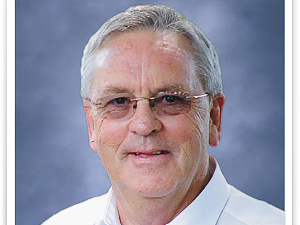OPINION: Not long after I started farming, I needed some bridge stringers to cross a small, on-farm stream.
I had seen a pair in the local council yard. I called the lady on the front desk – she was both telephonist, receptionist as well as teamaker and mail lady. She put me through to the chief engineer (now known as CEO) who knew the stringers I sought, put a price on them and said one of the council trucks could drop them off next week.
He enquired of my parents. “I always stop off for a cuppa when I am out your way”. He asked my reaction to the council holding rates to the same level as last year. He suggested they may have to increase them the next year by 1 to 1.5% to cover some road upgrading and bridge renewals.
They were the “good old days”. Simple, straightforward, very ‘local’ government. Bureaucrats were few, rarely seen and rarely heard. We elected the district’s best who spent a day a month away from the farm doing the business. Then came the RMA. The world changed.
The outcome has been a substantial power shift. Elected councillors, even elected Members of Parliament, have seen their relative influence wane and the new phenomenon – the technocrat or specialised bureaucrat – has emerged.
Central government with ideological agendas, pressure groups to appease, vote-catching promises to fulfil handed down even more requirements of local authorities. The snowball gathered speed. In a year when inflation was in low, mid-single numbers, some councils are asking for over 20% income increases. Bureaucrat and technocrat numbers have increased wildly. The numbers are startling and the effect on those who cannot pass on costs, like farmers, is traumatic.
Besides the disturbing cost increases are the time needed to comply, the corrosive impacts of frustration, anger and often utter helplessness, the challenge of uncertainty, and the stress on family and associates is taking a heavy toll.
Farmers are often isolated, too busy and too tired to socialise, have partners taking jobs in town in order to keep the farm afloat and are unaccustomed to “book” work. They went farming to avoid the dullness and frustration of administration, endless meetings, paperwork and formfilling. They hear the coalition Government’s messages of reform and removing unnecessary regulation but down on the farm it barely registers with councils and bureaucrats marching to the beat of their own technocrat drum.
Farmers have multiple traits to focus on with each one impacting negatively or positively if pursued on its own. It takes generations to gradually build a genetic profile that meets a farmer’s strategy. Chasing a methane reducing rainbow is an expensive gamble farmers cannot afford to take as they risk losing decades of genetic gains for productive traits that have made Kiwi farmers the most efficient and effective pastoral farmers in the world.
Agriculture is becoming the plaything for technocrats with no direct financial stake in the land. There is little accountability. Few cost benefit analyses. These regulation tsars are dreaming up more and more impositions for famers to take aboard.
The pressure is showing up in increasing levels of financial problems mental health issues and aging farmers. SNA’s, Fresh Water Plans, Farm Plans, Riparian planting, stock exclusion, slope restrictions, wintering requirements, ‘te Mana o te Wai’ and more.
The goose that kept laying all through covid and earns the lion’s share of our export income is going under.
The coalition needs to take greater responsibility for removing this pressure, curtailing the free-ranging powers of local authorities, wake up to the truth and the facts involving ruminant methane, learning to rely more on voluntarism rather than rules, and respecting private property rights – still the cornerstone of our democracy. Prime Minister Luxon got the words right at the Local Government Association conference – now he must get the actions right.
Another meteor that removes the Tyrannosaurus Technocrat is overdue.
Owen Jennings is former National President of Federated Farmers and ACT MP.



















